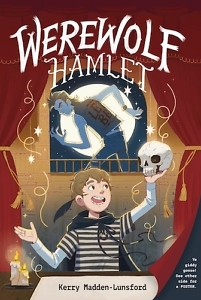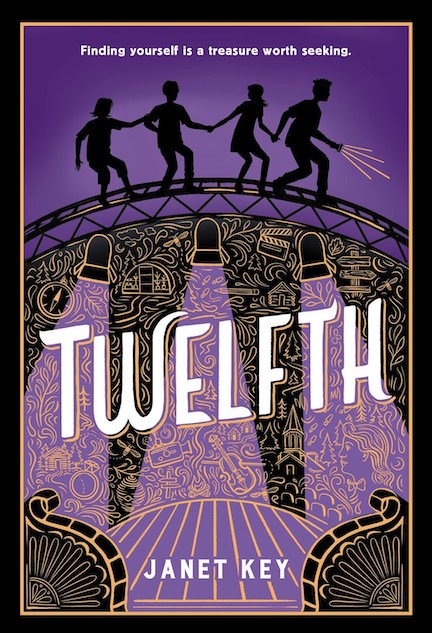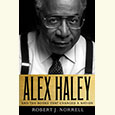Managing the Monsters of Childhood
A fifth-grader adds werewolves to Shakespeare in a bid to reach his older brother
In Kerry Madden-Lunsford’s middle-grade novel Werewolf Hamlet, something terrible is happening to Angus Gettlefinger’s 17-year-old brother, Liam. He’s turning into a monster, and Angus doesn’t know why.

A fifth grader living in Los Angeles, Angus has braces, plays the trumpet, and loves his basset hound, Renfield; he also has an unusually vivid imagination. He likes stage makeup, Shakespeare (especially the insults), and wearing capes. His favorite movies are black-and-white classics starring Charlie Chaplin, Lon Chaney, and Buster Keaton, characters so real to him that he makes up conversations with them and even daydreams about what it would be like if his teacher, Mrs. Loudermilk, suddenly turned into a velociraptor.
All of which sets Angus apart from his classmates. “If I were king of fifth grade, we would have field trips to places like the [Harry] Houdini mansion,” Angus declares. “There would be mandatory fencing with swords and poison goblets for mean kids, and once they sipped the nectar, they would fall under a spell that would make them say things like Hamlet is great! So are capes.”
But Angus has bigger problems than a few bullies at school. With their house in foreclosure, his family may have to leave the only home he and his three siblings have ever known. And that’s not the worst of it. Angus is worried about his older brother. He once idolized Liam, but lately things have changed. “He used to be funny and normal,” Angus says, “but now he snaps and goes bonkers and makes everybody sad or mad. It’s scary. … [H]e doesn’t wait for the full moon to go feral. Plus, he’s getting hairy.” And it’s not just Angus who is affected; it feels like his whole family is coming apart. Angus is sick of covering for Liam when he sneaks out of their room at night, so he decides to do something about it.
 When Mrs. Loudermilk asks the fifth graders to come up with a “legacy” project to leave their mark on the school after graduation, Angus hatches an ambitious plan: “I want to direct a play about Hamlet with werewolves added in some of the scenes,” Angus explains. “Our family saw Hamlet this summer at Shakespeare in the Park, and tons of coyotes started yipping and yowling right during Hamlet’s scary sword fight, and in that second, I imagined him turning into a werewolf.” Angus hopes his production will show Liam how his dangerous and thoughtless behavior is affecting others, especially those who love him the most. It’s a bold idea for a 10-year-old trying to deal with circumstances that even his parents are struggling to understand and address.
When Mrs. Loudermilk asks the fifth graders to come up with a “legacy” project to leave their mark on the school after graduation, Angus hatches an ambitious plan: “I want to direct a play about Hamlet with werewolves added in some of the scenes,” Angus explains. “Our family saw Hamlet this summer at Shakespeare in the Park, and tons of coyotes started yipping and yowling right during Hamlet’s scary sword fight, and in that second, I imagined him turning into a werewolf.” Angus hopes his production will show Liam how his dangerous and thoughtless behavior is affecting others, especially those who love him the most. It’s a bold idea for a 10-year-old trying to deal with circumstances that even his parents are struggling to understand and address.
Behind its charming comical premise, Werewolf Hamlet is a story about addictive behavior, specifically drug and alcohol abuse, and how it can turn someone you love into a “werewolf” — a monstrous version of themselves you no longer recognize. It’s a powerful metaphor that allows the author to talk to children about the ways in which other people, even beloved family members, may hurt and disappoint them. Angus navigates an abbreviated version of the stages of grief as he processes his own confusion, disappointment, pain, and anger, ending in something like acceptance, tinged with hope.
In her author’s note, Madden-Lunsford alludes to her own experience with a loved one’s addiction and says, “One of the first things I learned was the Three Cs: You didn’t cause it. You can’t control it. And you can’t cure it. A friend said, ‘But we can learn to cope,’ and another friend said, ‘And create.’” With Werewolf Hamlet, Madden-Lunsford has created a heartfelt portrayal of a child whose interior world makes more sense to him than the realities he faces, which is surely a situation with which many readers — young and old — can identify.

Tina Chambers has worked as a technical editor at an engineering firm and as an editorial assistant at Peachtree Publishers, where she worked on books by Erskine Caldwell, Will Campbell, and Ferrol Sams, to name a few. She lives in Chattanooga.


